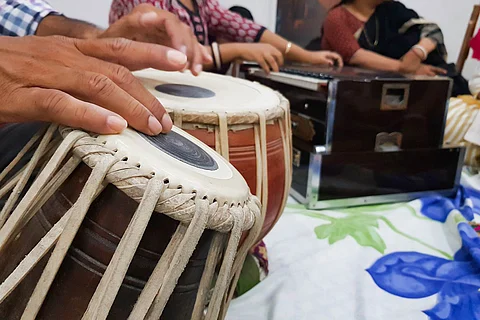

The Global Carnatic musicians Forum (GCMA) has sparked controversy with its latest decision to allow singers and instrumentalists accused in the Indian Me Too movement to perform as part of its four-day festival. At least five of the musicians listed on the GCMA's website have been accused of sexually harassing their pupils or their female colleagues and were named in posts on social media as well as public forums. In fact, three of the musicians – violinist Nagai Sriram and mridangam artistes Mannargudi A Easwaran and Srimushnam V Raja Rao – were dropped from the Music Academy's December list of performers in 2018 after they were named in Me Too allegations.
The event is scheduled for July 25, July 26, August 1 and August 2. According to GCMA's website, "Paarambariyam - Tradition" was planned to celebrate the first anniversary of the outfit. It will include 56 performers and expand over 14 hours. It is meant to act as a fundraiser towards GCMA's efforts to help the artistic community that has been affected by COVID-19.
Coming down sharply on the decision to include musicians who are accused of sexual harassment, several singers and performers who led the Me Too movement in Tamil Nadu have registered their protest.
"Using the excuse of providing support for artists to rehabilitate these individuals is simply ugly. Until today, the Karnatik music community has done little to create a safe environment for survivors to come forward and express themselves without fear of repercussions. In fact, by initially putting on an act of doing something, but letting things just pass, the establishment has ensured that the survivors will not speak. There has been no concrete intent of seriously investigating the accusations," said TM Krishna in a Facebook post about the event.
"Powerful artists have chosen to turn a blind eye, forget, act ignorant or have become apologists for perpetrators. Younger artists prefer to secure their careers (understandably) rather than jeopardise it, even if they feel strongly about this issue. Some younger stars have not bothered about the #metoo allegations against their co-musicians," he added.
Singer Chinmayi Sripaada too pointed out that the failure to hold these musicians accountable for their actions has emboldened them, and stopped survivors from speaking out.
"The increase in digital engagement has given a space for these alleged perpetrators to now erase allegations against them from the Me Too movement from people’s memory," says performer Swarnamalya, who helped put out survivors stories on social media during the Me Too movement.
"These kinds of concerts, workshops and their increased presence on social media is encouraged by organisations and people who are enablers. When questioned, the enablers have a typically have responses like “but he hasn’t been proved guilty, or worse, I haven’t experienced or known him to be so” etc which is classic rape culture apology," she adds.